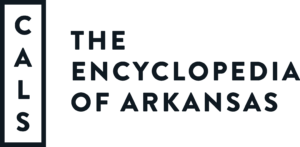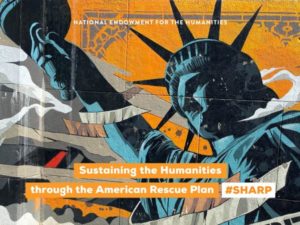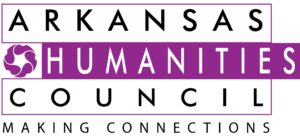calsfoundation@cals.org
The Encyclopedia of Arkansas Launches Redesigned Website
 The Encyclopedia of Arkansas (EOA), a project of the Central Arkansas Library System (CALS), has begun a new phase of its life with a website redesign that improves the user experience for students, researchers, and the general public.
The Encyclopedia of Arkansas (EOA), a project of the Central Arkansas Library System (CALS), has begun a new phase of its life with a website redesign that improves the user experience for students, researchers, and the general public.
“Since it launched in 2006, the EOA has become the premier resource on everything related to Arkansas history and culture,” said Nate Coulter, executive director of CALS. “These new changes will cement the position of the EOA not only within the state but also the nation at large.”
The redesigned EOA offers:
- An engaging and user-friendly EOA homepage with trending/featured entries, new entries, and overview sections.
- A vastly improved search engine, including a combined entry and media search, refinement within categories, and a new results layout.
- A cleaner appearance for photos and more media thumbnails used throughout the site (although some are still being recentered).
- The addition of alt text to entries for users with visual impairments and professionally translated overview entries into Spanish, as well as a Google Translate tool so readers can access the EOA in many languages.
The short video below gives an overview of the redesigned site.
And this short video takes you through the new, powerful search features:
 This project was funded in part by a National Endowment for the Humanities (NEH) Sustaining the Humanities through the American Rescue Plan grant award designed to stabilize cultural institutions during the COVID-19 pandemic, along with a grant from the Arkansas Humanities Council and funds from the Dolores Bruce Endowment from the Arkansas Community Foundation.
This project was funded in part by a National Endowment for the Humanities (NEH) Sustaining the Humanities through the American Rescue Plan grant award designed to stabilize cultural institutions during the COVID-19 pandemic, along with a grant from the Arkansas Humanities Council and funds from the Dolores Bruce Endowment from the Arkansas Community Foundation.
Guy Lancaster, editor of the EOA, recalled how, early in the pandemic, as classes started to move to remote environments, the EOA provided a crucial resource for both students and teachers. “We fielded a lot of Arkansas-related inquiries from people who suddenly could not access printed sources of information in schools and libraries,” Lancaster said. “And we could tell, from our analytics, that we had a lot more school districts using the website.” Lancaster added: “We have been wanting to make some specific changes to the site for a long time, just to make it more user friendly. The surge in usage drove home the necessity of doing that, and the grant funds made it possible.”
Coming soon is an improved feature similar to one that existed years ago, by which users can submit comments on entries and, once they are reviewed and edited, have those comments included at the end of the entry for other users to see.
The EOA was founded in the early 2000s by Tom Dillard, then head of the Butler Center for Arkansas Studies, the Arkansas history and genealogy division of CALS, and was initially supported by a very generous grant from the Winthrop Rockefeller Foundation. It launched in 2006 under editor Nathania Sawyer with 700 entries and 900 pieces of media available. The EOA now includes nearly 7,000 entries and more than 12,000 pieces of media and continues to grow.
To undertake the site redesign, CALS hired Army of Bees, a firm based in Atlanta, Georgia, that had previously worked on the New Georgia Encyclopedia, the first digitally born state encyclopedia and one of the inspirations for the creation of the EOA.
“Army of Bees has been a dream to work with,” said Heather Zbinden, programs and website coordinator for the CALS Roberts Library of Arkansas History & Art, where the EOA offices are located. “Online encyclopedias are their own unique beast, and so it helps to have someone on your side who understands the challenges of building them.”
The grant from the Arkansas Humanities Council allowed CALS to pay for the addition of the Google Translate tool, as well as hire Spanish-language translators to produce translations of the eight larger time period overviews. In addition, a contractor was hired to add “alt text” to pieces of media. Alt text, or alternative text, is a short, literal description of an image that makes the internet more accessible for people with visual impairments. The Dolores Bruce Endowment from the Arkansas Community Foundation also made some of the technical improvements possible.
“As a public library system,” said Coulter, “we are all about accessibility, making available the information and tools people need to get by and succeed in our world. The EOA is a measure of our ability to achieve that goal.”
“In the past,” Coulter added, “Arkansas history was a niche subject, but that’s no longer the case. The EOA makes Arkansas available to the whole world.”
The Arkansas Democrat-Gazette featured the EOA’s redesign in an article on September 5, 2022.




